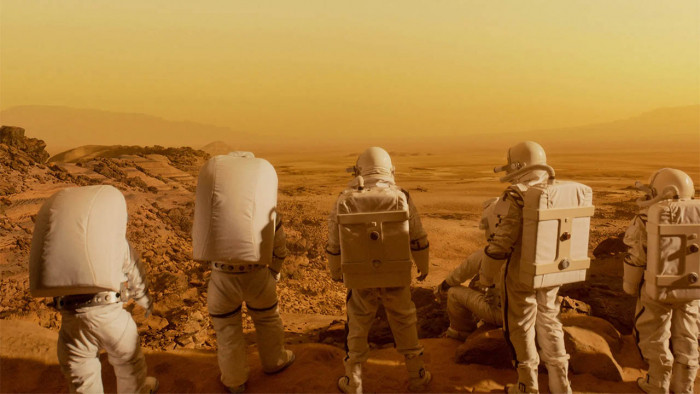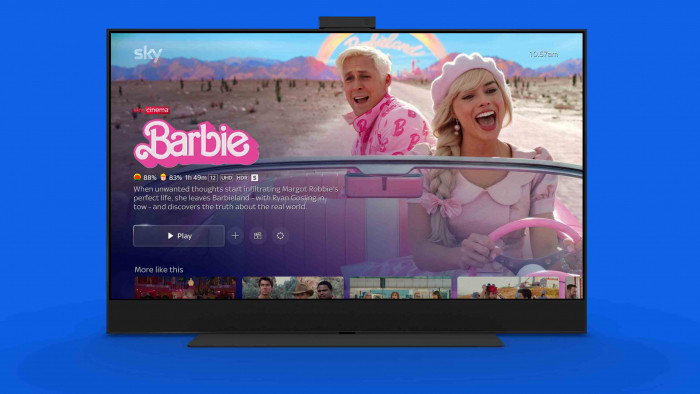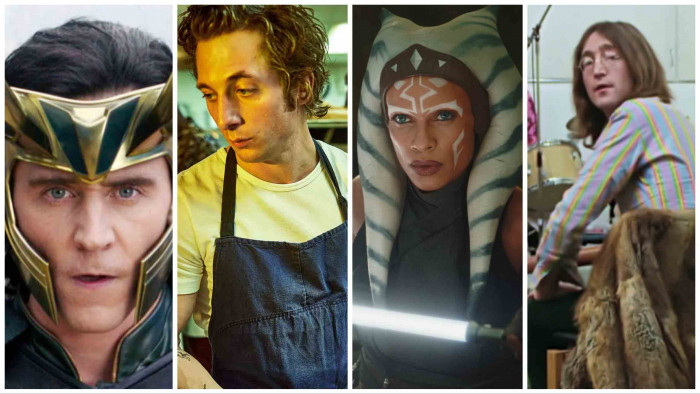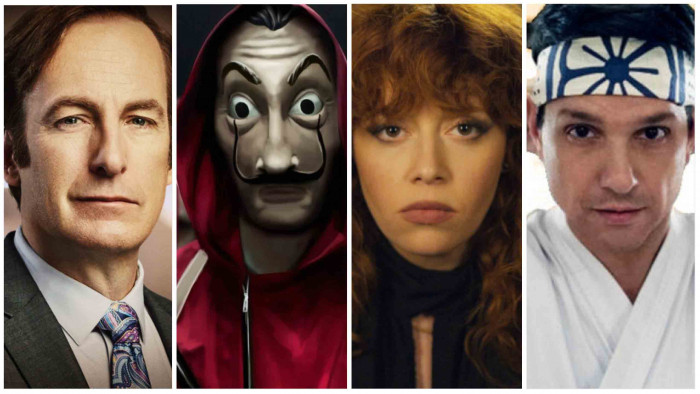Tony Blair’s time in office was one of the most controversial in Downing Street history. ShortList’s Matt Hussey takes on New Labour’s architect
Tony Blair is a hard man to pin down. It’s taken 10 weeks, 17 phone calls, 50 emails and seven new grey hairs in order to get an audience with the former PM. And now, after all the debates over whether to dye my hair (I decided against it), I’m here in the centre of his philanthropic empire; a discreet building in London’s Grosvenor Square.
Blair has returned to publicise his autobiography (to varying degrees of success as several book signings have been cancelled due to protesters) and the building is buzzing with his army of staff including secretaries, security guards, aides and assistants.
While waiting in the lobby, Sir David Frost emerges from a side door, thanking the former PM for an “outstanding interview”. Blair emerges shortly afterwards with his trademark smile. There’s a presidential air about him; his broad shoulders pushed back, chest puffed out, striding purposefully up the stairs.
I’m eventually ushered into his light, airy first-floor office, which, judging by the sparse décor and pristine Chesterfield armchairs, looks like it hasn’t hosted anyone for some time. He’s a lot taller than you’d imagine, standing well over 6ft. For someone who spent a decade in the most stressful job in British politics, and now aged 57, he looks surprisingly well, although his tanned face has lost a certain plumpness since he first came to power in 1997, and the lines on his forehead are, well, entrenched.
I was told I had precisely 25 minutes to cover nearly two decades worth of public life and true to their word, I was marched to the door after 25 minutes and 15 seconds to make way for the next interview.
Blair seemed cautious. I, on the other hand, was acutely aware that I was one of maybe 10 people in the UK to have an interview with our former PM. Excited doesn’t cover it...
How has your book been received?
The book is doing extremely well. I’ve tried to write it in a different way, so that somebody not obsessively interested in the world of politics would enjoy reading it. I’ve tried to make it a human account of what it’s like to be prime minister — a normal person in the middle of extraordinary events.
What about the media’s response to your return?
Someone like me will always provoke strong opinions so some will hate it and some will love it. I think the general consensus has been that it’s a good read, and that’s the most important thing. Plus, the proceeds are going to the Royal British Legion, so the more it sells, the better for them.
You’ve been out of the limelight for three years. Have you missed it?
No. (Laughs) It was very difficult for me to leave the party when they were still in power. It’s harder to be part of the British political scene (after you’ve been in power) because everything you do or say will be used against your successor. I wanted to leave everything clear for Gordon (Brown).
You mentioned in a recent TV interview that it would be tricky to come back to British politics. Why?
It’s a statement of the obvious in a way. It’s unlikely that if you’ve spent 10 years as prime minister you’d go away and come back. I don’t want people thinking I’m about to re-launch my British political career.
If you were to speak to the Blair you were back in 1997, what would you tell him?
(Laughs) I think the journey for a politician goes from wanting to please all the people all the time, to a political leader that realises in the end his responsibility is to decide. And when he decides, he divides. I think what I’d say to Tony Blair in 1997 is: “It’s not possible for a political leader, especially in a world of such fundamentally difficult decisions, to keep all the people on-side all of the time.”
Did you and Bill Clinton ever jam in the White House?
No (laughs), I didn’t, but he is a serious musician. I wouldn’t describe myself as that, but he seriously studies it.
Do you think George W Bush was sold short by the press, especially regarding his intelligence?
The way the media works, it gives very exaggerated views on people, but you don’t get to be president of the United States and be dumb, believe me.
Do you think the brush that Bush was tarred with affected the way people saw your premiership?
Oh yeah, of course. He was very much an American politician and it didn’t always translate here, and therefore of course, I got connected with that. But on the whole it was fine because I believed in what I was doing. There is no way you’re going to have an event like 9/11 and expect things to remain the same. They (al-Qaeda) killed 3,000 people in New York on that day, and if they could have they would’ve killed 300,000. Once that happened, American foreign policy, whoever was the president, was going to change dramatically and British foreign policy was going to have to make a decision as to be with them or not. I took the view that we should be, and I still take that view.
I know some people would like me to retire but I never will
Some of monikers that people gave you — ‘Bliar’, ‘Thatcher in disguise’ — do you look back at those now and laugh?
An American president said, “If you can’t stand the heat, don’t come in the kitchen.” You’ve just got to put up with that.
So it’s water off a duck’s back?
Look, I wouldn’t be human if some of the things didn’t have an impact on me, but all in all, it’s a privilege to do the job. If I got down about things, or I was whingeing about the way the media treated me, my wife would always say, “It’s voluntary, you can leave any time you want, so don’t complain about it — just get out and do it.”
So, if you were back in cabinet, and you could pick your fantasy team, dead or alive, who would it be?
(Laughs) I know I’m a bit out of practice with this, but that is definitely in the category of questions you don’t answer.
Really?
Yes. But, for the record, it’d be a Labour government.
How did you cope with the stress of your previous job, and how does it compare with your current position?
The stress now isn’t the same as it was when I was prime minister. That’s why I have a huge respect for anyone that takes on the job. The essential thing in any stressful life is to physically take relaxation and exercise and mentally always count your blessings. However difficult your life is, think of all the things you can celebrate and count yourself lucky about. Once you do that, you develop the right positive energy.
In the book you mention drinking a lot during your time in office. Was it a form of stress management?
Well, I suppose in some way it was. It’s been very funny, the reaction to that. All my friends who are proper drinkers say it’s the most pathetic and sad admission they’ve ever come across! A gin and tonic and a couple of glasses of wine! (Laughs) John Reid (former Home Secretary) made a great comment about this — he said where he was from in Glasgow they give more than that to the budgie (laughs).
When you came into power, Britain was having its own Barack Obama moment. Do you think those feelings of optimism and hope have gone?
I think these were very special moments, but you’ve got to be quite careful of them too. I’ve just come back from a meeting with President Obama in the US, and he’s a great guy and a great president, but the criticism he gets now and the abuse, it’s like, “Come on guys, he’s not even been there two years.” Those expectations are always so sky high — they can never really be met.
Did you have a nickname while you were in office? ‘Big T’, for example?
(Laughs) In Downing Street they called me ‘Boss’. Civil servants would always call me ‘Prime Minister’.
Are you an iPhone or a BlackBerry man?
I used to know nothing about technology, I was hopeless with it while I was in government. I never had a mobile phone but now I’m a devotee of the BlackBerry. The iPad is great, too.
So now you’re out of politics, have you been tempted to appear on any TV shows such as Have I Got News For You?
(Laughs) What?! No, I don’t feel the need to do that. I’m very much still active in politics in the Middle East peace process, so retired is the last description I’d give. I know some people would like me to retire but I never will.
A lot of people have said that a year in politics is the same as three years in another job. Is it the most ageing job?
That and the England manager (laughs).
So which do you think is harder: Fabio Capello’s job or yours?
That’s a tough position. I’ve always felt sorry for the people that do that job. They always get so much stick. It’s a very tough job to do.
As tough as yours was?
Look, to be fair, being prime minister is different. Yes, football fans are passionate, but a politician’s problems are different and more serious, but I think in terms of what you can expect regarding media treatment it is roughly the same.
So being in a cabinet is like having a First XI who can play brilliantly or terribly, and you’re left making decisions for them afterwards?
There’s a bit of that, yes. Look, you live in a media environment that’s very competitive, 24 hours a day, pretty brutal — it just is.
There have been a lot of rumours about you having botox. Can you clear this up for us?
What?
There have been rumours in some of the newspapers recently.
Really?
Yes, in your interview with The Sunday Times, the journalist talks about it.
Well, that is complete rubbish. I can safely rule that out. I mean look at it! (Points to forehead and laughs)
You also said in an interview that you were in need of a manicure…
What? I said I need a manicure?
You said it right here (shows the article). Do you have a grooming regime?
I do a lot of physical exercise. I think it’s important, especially as you get older. I really couldn’t have done the job of prime minister without being physically fit. Nowadays, because it (the job) is just physically so much more than you used to do (in previous eras), it’s really important in that sense. But as for the rest of it well, you’re getting older. I’m not into face-lifts.
In Downing Street they called me ‘Boss’. Civil servants would always call me ‘Prime Minister’
How did you cope with having a teenager in the house when you were trying to run the country?
It helped keep my feet on the ground having teenagers in No10. But I want you to do me a favour on this, because Euan rightly points out that the only things I say about him in the book are that he didn’t do well in his exams and he got drunk. And now, 10 years on, he’s turned into a fabulous young man who’s done extremely well and I’m very proud of him, so I wanted to put that on the record (laughs).
What would you have said if Euan had came up to you one day and said, “Dad I want to join the Army”?
I would’ve said it was great. It’s fantastic, the training and people are absolutely fantastic.
Have you ever been star-struck?
Yeah, I was actually. I remember meeting Paul McCartney for the first time. He came to see me and it was absolutely bizarre. He came up to me and said, “I’ve wanted to meet you.” And I said, “Don’t be ridiculous, I should be saying that to you!” (Laughs) When you meet people like that, Nelson Mandela, Pope John Paul… it’s a big moment.
So what did you talk about when Noel Gallagher came to No10?
That was the only time we had that sort of party. It’s just ridiculous that it became a Labour ‘thing’, but, you know, those guys are great guys to know. Oasis are a great band. I don’t think they’re big fans of mine.
Do you have a favourite song?
No. What I do with my iPod is my kids put all their music on there so whatever they listen to, I listen to. It goes all the way through from U2 to Foo Fighters and Snow Patrol.
What are your five favourite books?
Er… I don’t know about that. I read a lot of books to do with religion. I tell you a great book I’ve just read, two good books, one is a thriller, The Girl With The Dragon Tattoo, it’s a really good read. The other is there’s been a new biography on Albert Einstein (Walter Isaacson's Einstein: His Life and Universe) which I’ve found absolutely fascinating, I’d highly recommend it.
Any more?
Ivanhoe by Sir Walter Scott and The Bible.
The 25 minutes are up and Blair disappears with an assistant, immediately launching into the brief for his next interview. Another member of his team waits by me and our photographer as we hurriedly collect all our belongings and are ushered out of the building. As I stand outside taking stock I receive a text from Blair’s assistant saying that if I needed anything else, Blair would be glad to answer more questions via email. That’s an opportunity not to be missed, and unlikely to be something Blair did for all his interviewers so I later fire over a quick volley of topics I didn’t get round to: Brown, the coalition and whether he could have beaten David Cameron in the general election. Some 24 hours later, I receive a reply.
What would you have done if you hadn’t entered politics?
I would’ve loved to have been in a band, but sadly I just wasn’t good enough.
Did you feel sorry for Gordon Brown at any point during his leadership?
Look, I have an acute understanding of how tough that job can be. So, I actually feel for anyone who does that job because it’s hard. I think the funny thing about Gordon is that he was overestimated before he was prime minister and heavily underestimated when he was prime minister.
When was the last time you spoke to him?
We’ve definitely spoken since the election about politics and we actually spoke fairly regularly when he was prime minister.
Do you think you could’ve beaten David Cameron had you stood in this year’s general election?
I think Gordon could’ve beaten him. I outline in the book that I think the public would’ve accepted a good New Labour offer in 2010.
What are David Cameron and Nick Clegg like as men?
They’re fine, but it’s not for me to comment.
A Journey by Tony Blair is out now, priced £25 (Hutchinson)
Picture: Philip Riley










